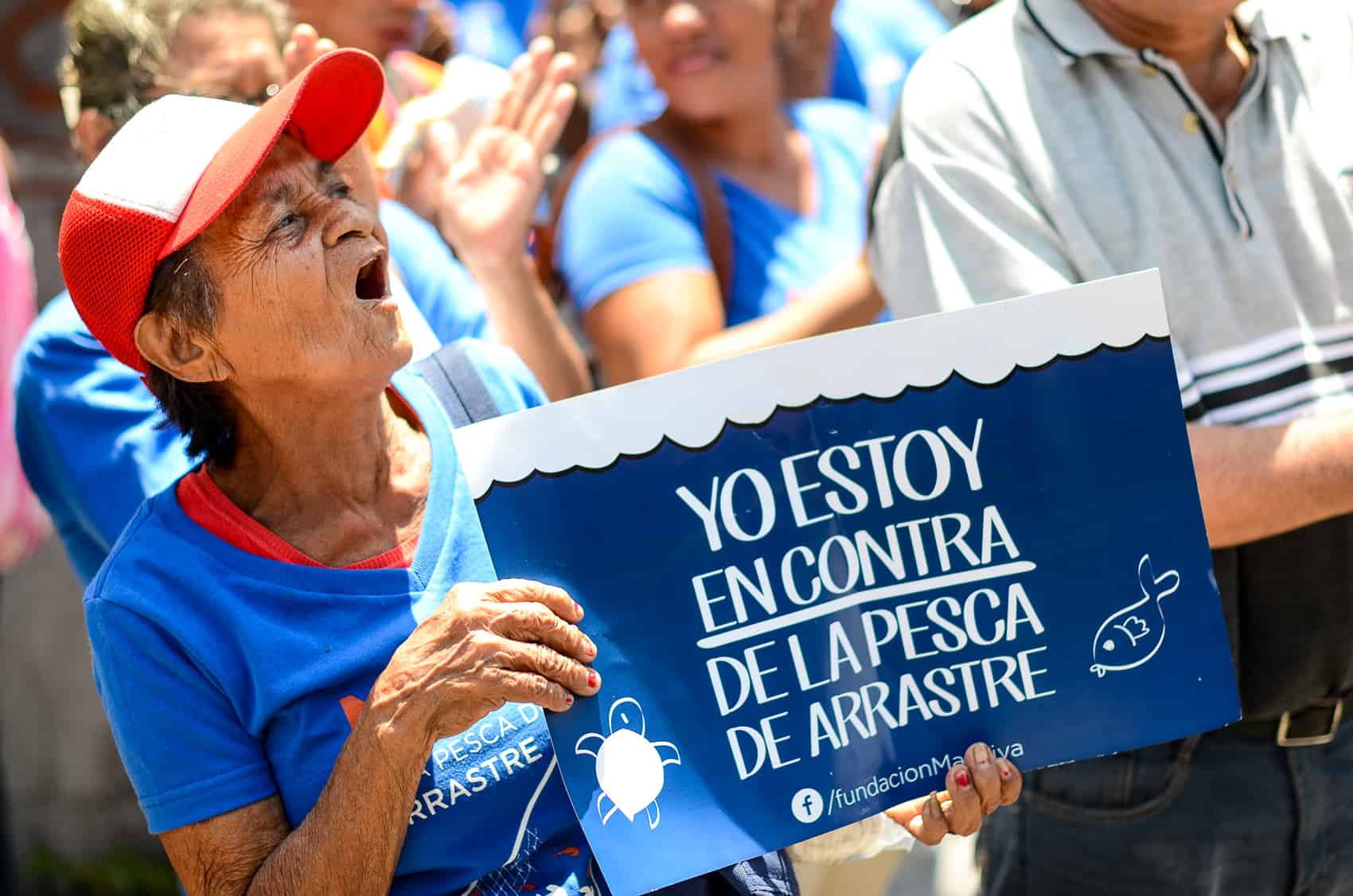With the start of the new legislative session last week, the government has resumed a battle in the environmental commission over a controversial shrimp trawling bill. The bill, which was drafted and submitted by the executive branch, would allow shrimp trawlers to renew their licenses under certain sustainability criteria.
In accordance with a 2013 ruling by the Constitutional Court, or Sala IV, shrimp trawling will be phased out by 2019 unless the bill passes.
The bill was introduced earlier this year but stalled in commission in March, prompting the government to pull it before it could be rejected. The commission will now hear from fishing experts, environmental groups and biologists before a final vote to either kill the bill or send it to the full Legislative Assembly for discussion.
Among the first to appear before the commission were environmental groups opposed to the law. “We are fighting against a government that is determined to reinstate shrimp trawling,” said Jorge Jiménez, the regional director of MarViva, an environmental group that opposes the bill. “We don’t know what is going to happen.”
Initially, lawmakers viewed the bill as a direct violation of the Sala IV’s ruling, which found that shrimp trawling violated Costa Ricans’ right to a clean environment. The government asked lawmakers to reconsider the bill, claiming it complies with the ruling by setting sustainability requirements.
Gustavo Meneses, president of the Costa Rican Fisheries Institute (INCOPESCA), said opposition to the bill on environmental grounds is unfounded.
“I don’t know if it is because of misinformation or prejudice that environmentalists are so opposed to the bill,” Meneses said. “Environmentalists are saying that this is a law that is going to give out licenses without studies and that is a huge lie. The spirit of the law is to have scientific measures that can’t be changed in the future due to political interests.”
While the bill does not set any specific requirements for shrimp trawlers, it creates a basic framework for defining what the government would consider sustainable. According to Meneses, zoning studies are underway to determine which types of fishing, including shrimp trawling, are appropriate for which areas. He said the government has also been working with the Food and Agriculture Organization of the United Nations (FAO) since July to study ways to reduce bycatch, or species that get unintentionally caught in trawling nets.
Despite these assurances, many groups say that no amount of technological advancement could make shrimp trawling sustainable. Friday, the University Committee of Costa Rica’s National University (UNA), submitted a letter to the Legislative Assembly opposing the bill.
The University of Costa Rica’s Ocean Sciences Investigation Center (CIMAR) and a number of groups representing small fisherman have also voiced their opposition.
Though different sectors remain deeply divided on the question of shrimp trawling’s sustainability — in part because there is not yet an official definition of a sustainable fishery in Costa Rica — these opinions are ultimately subjective. According to Carlos Fuentevilla, the coordinator of an FAO-sponsored project on shrimp trawling, many countries are able to reduce bycatch to a point that they consider sustainable.
“Each country is different, but we can get a country to a point that they are using the best practices,” Fuentevilla said. “Ultimately, it will be up to Costa Rica to determine what they consider sustainability.”
Whether that determination will fall to the legislature or the courts is yet to be determined. While the Sala IV found that the amount of bycatch and the damage to the ocean floor caused by trawling made it unconstitutional, the ruling did not give specific targets for what the court would consider sustainable.
Despite the ambiguity, at the end of last month a lower court interpreted the Sala IV ruling to mean all shrimp trawling is unsustainable. It threw out a 2013 INCOPESCA regulation that allowed trawlers into an environmentally sensitive fishing area.
Because of gray areas, even if the shrimp trawling bill passes the Assembly, it will need to go to the Sala IV for review. The court will then decide if the bill violates its previous ruling.
According to Meneses, this process could take years.






